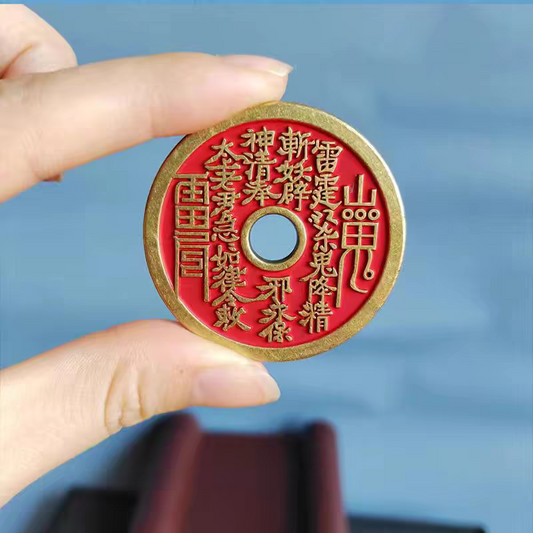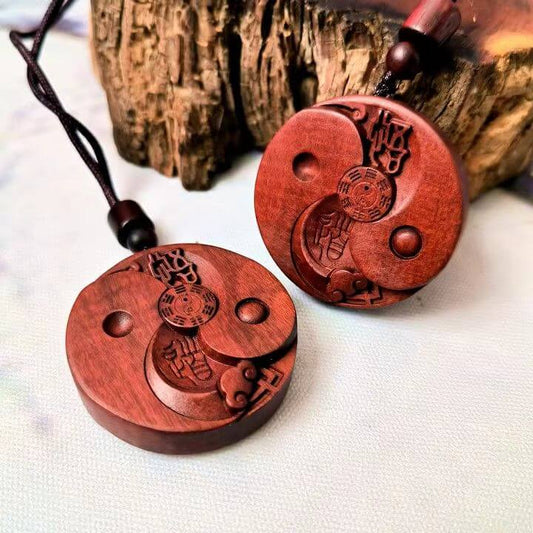
The Origins of the Gods of Fortune, Prosperity, Longevity, Happiness and Wealth
paulpengAktie
1. The God of Fortune: "The Three Officials Great Emperor" are the three celestial gods revered in early Taoism, namely "The Celestial Official", "The Earthly Official" and "The Water Official". Taoist scriptures state: "The Celestial Official bestows fortune", "The Earthly Official pardons sins", and "The Water Official resolves disasters".

"The God of Fortune" is the "Upper Yuan Celestial Official Great Emperor" in Taoism. Because "The Celestial Official bestows fortune", it is called "The God of Fortune". The "God of Fortune" holds a jade Ruyi scepter or holds a child, being the first-rank great emperor in the Celestial Palace, in charge of the distribution of fortune among humans and is highly respected among the people. According to historical records, the "God of Fortune" was originally the "Year Star", that is, Jupiter in the solar system. It was clearly recorded in historical books such as "Records of the Historian" and "History of the Han Dynasty" as the star official in charge of agriculture. It is said that the end and beginning of the year are the days when the "Year Star" descends. Therefore, during the Spring Festival, every family pastes the character "Fortune", every household has Spring Festival couplets, and on New Year's Eve, the whole family burns incense and offers sacrifices. They gather around the stove and chat at night, praying for the descent of the "God of Fortune" to bring good luck, a bountiful harvest and a harmonious and happy family.
2. The God of Prosperity:
It is the god specially worshipped by the folk for official positions and achievements. The earliest reference was to the six stars of Dou Kui among the seven constellations in the north among the twenty-eight constellations. This star was listed as an auspicious star in ancient astrology, so Taoism reveres this star god as the one in charge of official positions and achievements.
Adapting to the pursuit of the imperial examinations by ancient scholars, this star is also called Kuixing. It belongs to the stars of Wenchang Palace in the north and is also known as Wenchang Star and Wenqu Star. Legend has it that the Jade Emperor ordered this god to be in charge of Wenchang Palace and the official positions and fortune among humans, and since then, it has become the most revered god by scholars pursuing official positions and fortune all over the world.
3. The God of Longevity:

It is the god worshipped in folk beliefs for the prayer of a long life. The God of Longevity refers to the Elder of the South Pole among the twenty-eight constellations.
In traditional beliefs, the God of Longevity is bald with a white beard, a high forehead and a long head, big ears and a short body, holding a curved staff higher than his head. It is one of the most popular secular gods among the folk. Previously, every household worshipped the God of Longevity as a symbol of blessing.
4. The God of Happiness: Popularly known as the god of joy and happiness. Because people's wishes are to pursue auspiciousness and avoid disasters and pursue joy and happiness, a God of Happiness was imagined.
When holding a wedding ceremony, the God of Happiness is indispensable. In the old custom, the bride must sit and stand facing the direction where the God of Happiness is located. The greatest feature of the God of Happiness is that it has no specific image and no dedicated temple, being highly abstract.
5. The God of Wealth: The God of Wealth is mainly divided into two categories. One is conferred by Taoism, and the other is from Chinese folk beliefs.
The folk generally offer sacrifices to Zhao Gongming. Taoism mainly reveres him as the God of Wealth. This god has four subordinates, namely, the Celestial Official Zhaoosheng who summons treasures, the Celestial Official Zhaobao who accepts treasures, the Messenger Chen Jiugong who attracts wealth, and the Immortal Official Yao Shaosi who benefits the market. These gods are all specialized in money and treasures, with Zhao Gongming as the main god of wealth. Generally, merchants in the folk regard Guan Gong as their patron saint, and Guan Gong is also regarded as the God of Wealth who attracts wealth and treasures.










